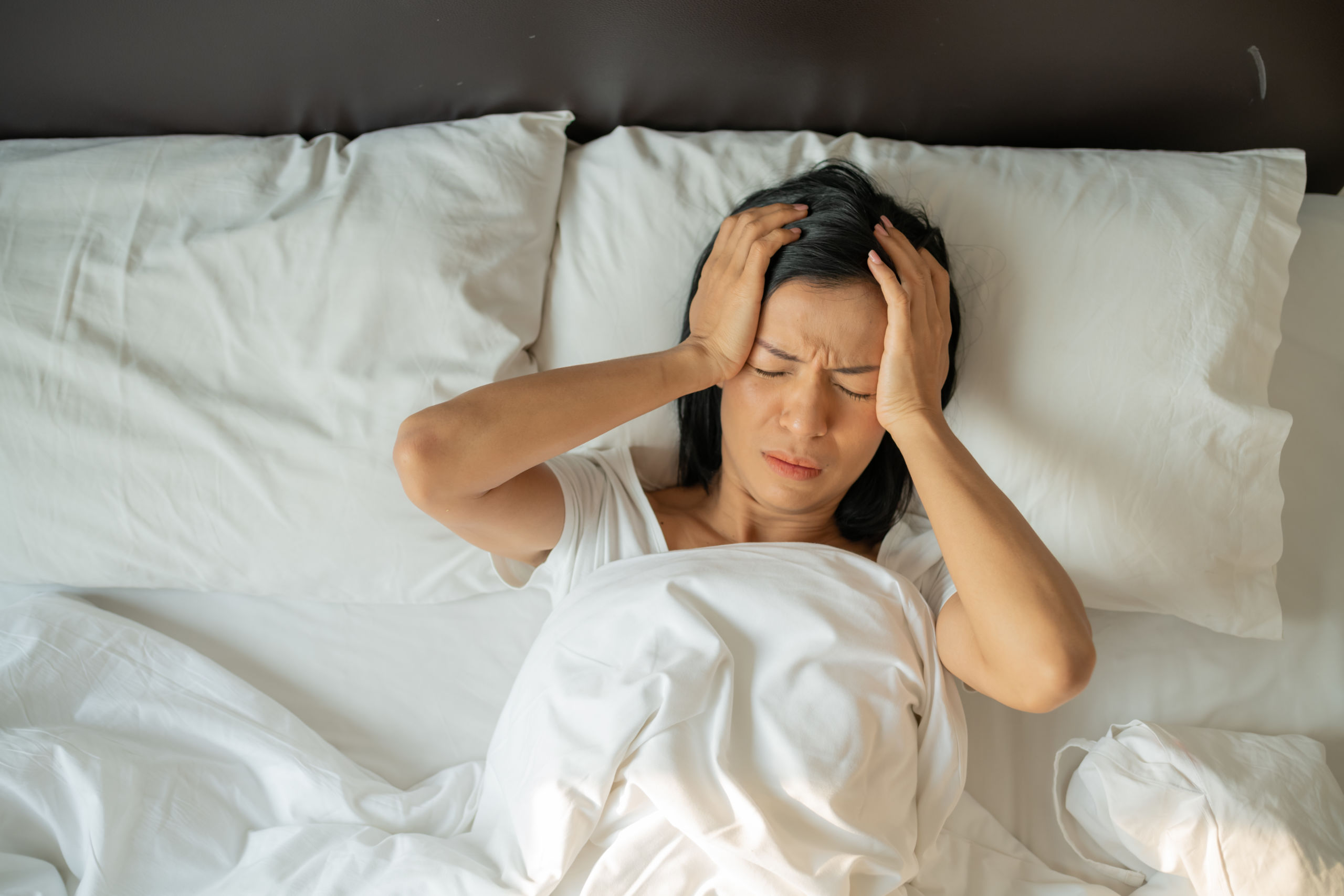Insomnia is a frequent sleep problem that makes it difficult to fall asleep, stay asleep, or cause you to wake up too early and be unable to sleep again. When you wake up, you might still be tired. Insomnia can deplete your energy and attitude, as well as your health, work performance, and overall quality of life.
You are not alone. Insomnia happens among 95% of Americans at least one time during their lifetime, at least 25% of adults have chronic insomnia problems, while more than 50% of elderly are battling chronic insomnia.
The amount of sleep required varies by everyone, although most individuals require seven to eight hours per night.
Insomnia has also been linked to poor sleep patterns and a sedentary lifestyle. Many people develop these habits as children, making them difficult to break as adults. Going to bed at a different time each night or napping too much during the day are examples of these habits. Working evening or night shifts, as well as exposure to “screen” gadgets such as computers, televisions, and cell phones, can create sleep issues. Other variables, including insufficient activity throughout the day or excessive noise and/or light in the sleeper’s bedroom, can make it difficult to fall or stay asleep.
weMED Clinic has helped thousands of insomnia patients reduce or get rid of sleeping pills since 2006 through acupuncture, herbal medicine, meditation and other natural modalities. Let’s get into the root causes of insomnia.

REQUEST A CONSULTATION
Telemedicine Available!
Telemedicine Available!
Causes and Symptoms of Insomnia
Insomnia is thought to be caused by a hyperarousal state that affects sleep onset and duration. Hyperarousal can be either mental or physical, or a mix of the two. Insomnia can be caused by a variety of reasons, including environmental, physiological, and psychological factors. The following are some of them:
- Disorders of the mind and behavior.
Insomnia is a typical depressive symptom. Insomnia can be caused by stress and worry, which can increase stressed and anxious sensations. Insomnia can also be caused by mental health issues such as bipolar illness. Insomnia is thought to be caused by excessive concern about sleepiness.
- Consumption or ingestion of drugs that have a bad impact on sleep.
Caffeine, as well as alcohol, nicotine, and other substances, are examples. Certain medications can also hinder sleep, such as diet pills and cold remedies. People may also have sleep-onset or sleep-maintenance troubles as their bodies adjust to new medications or deal with medication withdrawal after they’ve stopped taking them.
- Problems with your health.
Physical discomfort might make it more difficult to fall and/or stay asleep, resulting in daytime difficulties. Insomnia symptoms can also be caused by conditions that require numerous trips to the bathroom at night, such as pregnancy or an enlarged prostate. Sleep apnea, a disorder marked by irregular breathing episodes known as apneas that occur throughout the night, is the same. Insomnia is linked to chronic pain, restless limb syndrome, heart illness, and lung disease.
- Travel or work demands.
Circadian rhythms serve as an internal clock that regulates your sleep-wake cycle, metabolism, and body temperature. Insomnia can be caused by disrupting your body’s circadian rhythms. Jet lag from flying across numerous time zones, working a late or early shift, or changing shifts regularly are all causes.
- Excessive eating late at night.
It’s fine to have a modest snack before night, but eating too much can make the person physically uncomfortable when lying down. Heartburn, or a backflow of acid and food from the stomach into the esophagus after eating, is common and can keep the person awake.
What are the different kinds of insomnia?
Insomnia can be a one-time occurrence or a long-term problem. There are two types of insomnia: short-term insomnia and chronic insomnia:
Stress is a common cause of short-term insomnia, which lasts a few days or weeks. When sleep problems occur at least three times a week for three months or longer, it is referred to as chronic insomnia.
How much sleep do the majority of individuals require?
Most adults require seven to nine hours of sleep per night, although the amount of sleep required to function optimally varies from person to person. It’s just as important to get enough sleep as it is to get enough. Tossing and tossing and waking up frequently is just as hazardous for your health as not being able to sleep.
What is the best way to manage or treat insomnia?
Insomnia can be treated with a variety of approaches, including therapies, medication, some supplements, and natural remedies. Here are some of the usual approaches to treat insomnia:
Cognitive behavioral therapy teaches ways for relaxing, controlling your breathing and attitude, slowing down your racing mind, and falling asleep. Therapy (CBT-I) CBT-I is a short, organized intervention for insomnia that teaches you how to recognize and replace thoughts and behaviors that cause or exacerbate sleep problems with sleep-promoting habits. Unlike sleeping drugs, CBT-I helps you optimize the mindset of insomnia.
Medications: The greatest way to enhance your sleep in the long run is to make behavioral and lifestyle changes. Taking sleeping drugs for a short period of time can help you sleep in some instances. Doctors advise only using sleep medications on occasion or for a short period of time. They aren’t the initial treatment option for chronic insomnia, since sleeping medications may also cause insomnia, fatigue, and memory loss.
